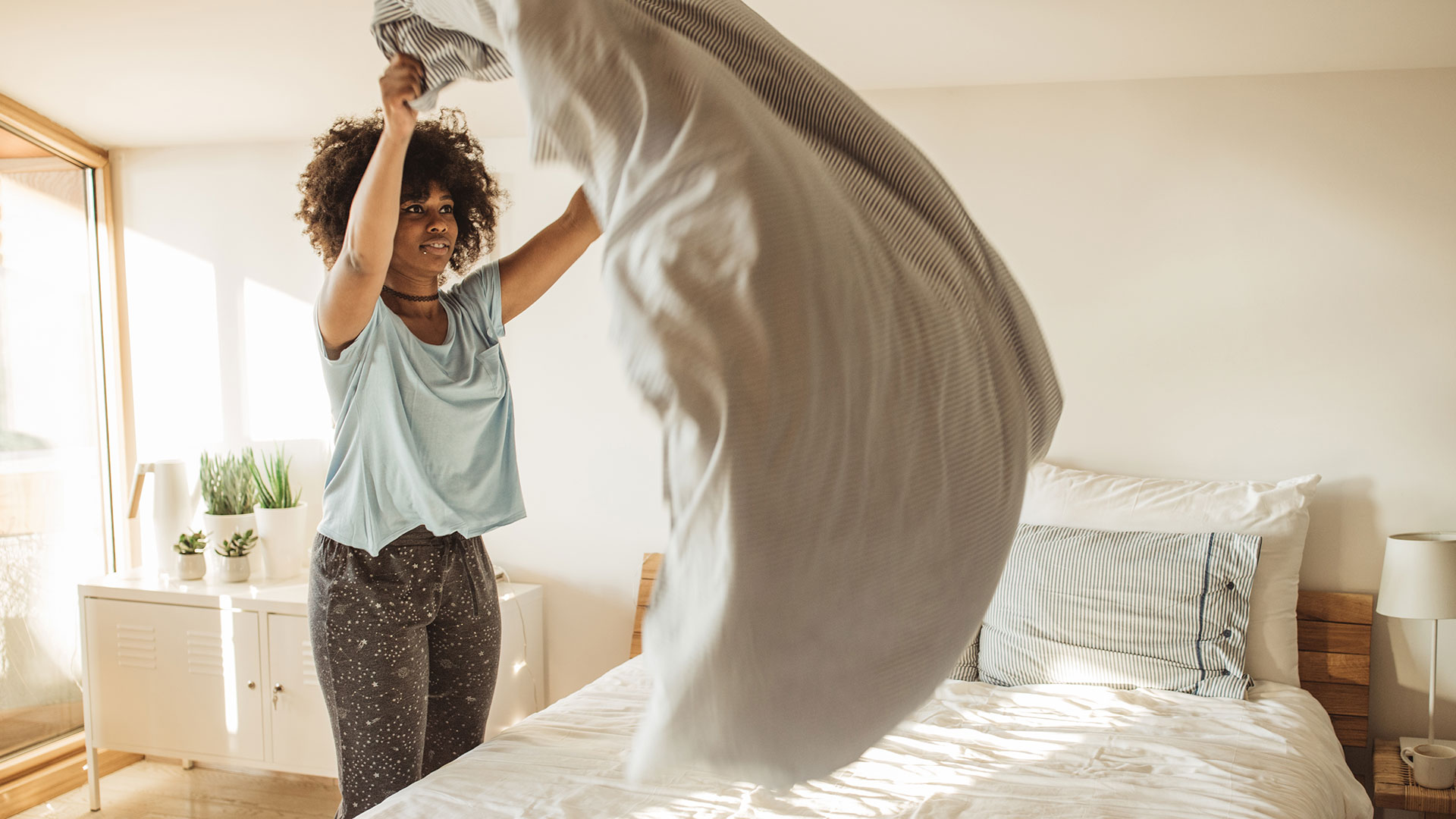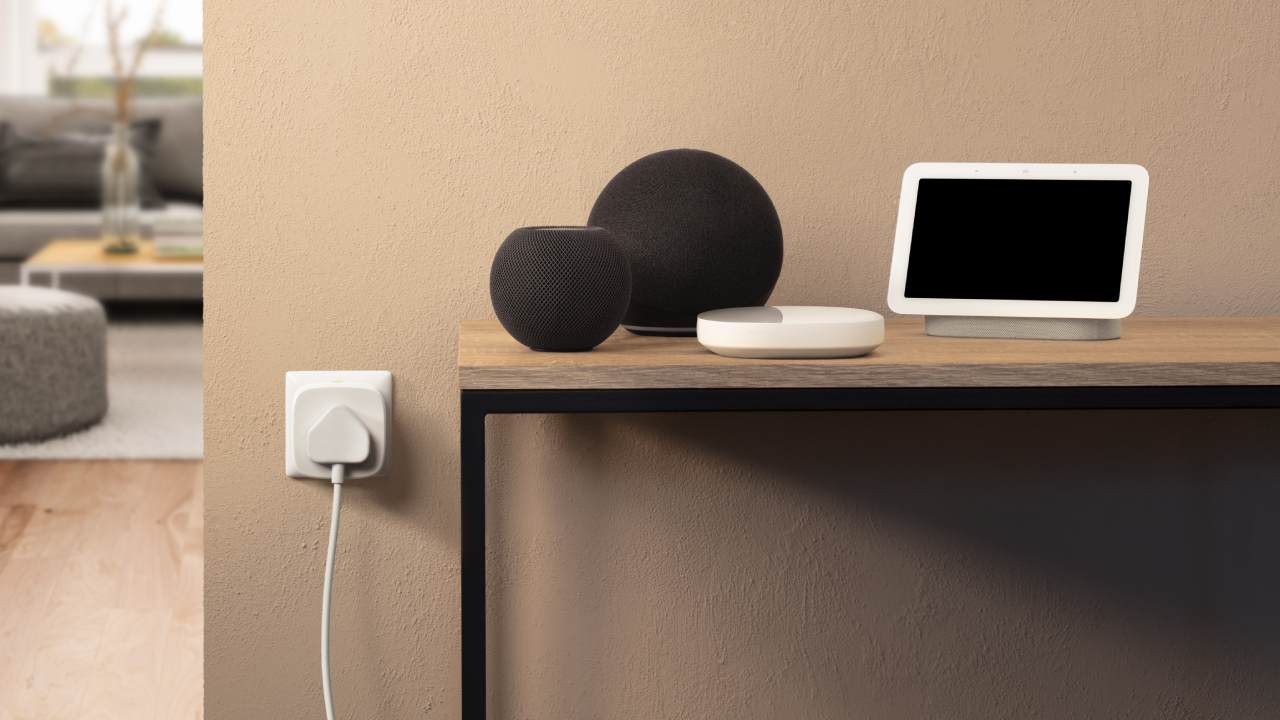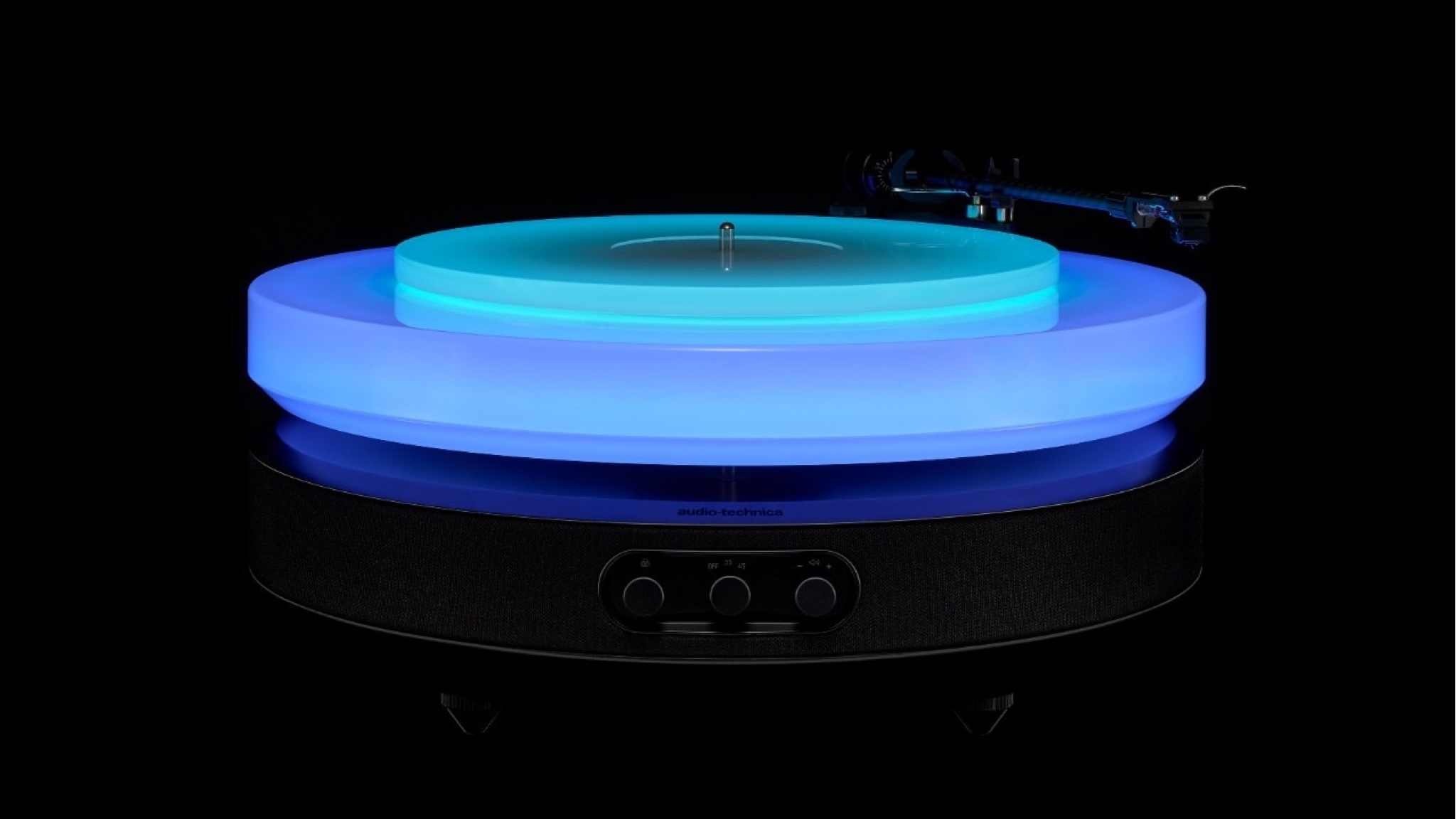

It might seem straightforward, but people have very different opinions on how often you should wash your bedding, what temperature it's best to wash sheets at, and whether it's okay to tumble dry your bedding or not. This guide is here to answer all those questions and more.
Before we start, the golden rule is to check the care label first, to make sure there aren't any special washing instructions you need to follow. If there are, obviously, follow these instructions first and foremost. If not, read on for some general rules on how to clean your bedding effectively. If you invest in some of the best sheets, they'll be designed to wash well and last a long time.
How often should you wash your bedding?
The general rule is you should wash your bed sheets once a week, or once a fortnight at the longest. That rule goes for all the bits of the bed that are in direct contact with your skin – so, in the UK that's things like sheets, your duvet cover and pillow cases.
If you're not sleeping in your bed every night, or if the weather is cooler and you're not sweating at night, you might be able to stretch to once a fortnight.
If you have pets, and especially if you let those pets sleep in your bed, you should be washing your sheets once every 3-4 days. If you suffer from seasonal allergy flare-ups, you might also want to wash your sheets more than once a week during the summer months, and ditto if you find yourself sweatier than usual in hot weather.
Why do you need to wash your sheets so often? Well, if you spend 8 hours a night in bed, that's 56 hours a week. Which is plenty of time for dirt, dead skin cells, sweat, body oils, and dust mites to build up. (For context, consider how many hours you'd typically wear a piece of clothing like a shirt or top for before washing it.)
While sleeping in a bed full of old sweat isn't hugely appealing, it's the dust mites that will perhaps cause the most problems the quickest. Dust mites (or, often, their droppings) can lead to skin irritation and allergy flare ups. Washing your bedding is a key way to get rid of dust mites.
Sign up to the T3 newsletter for smarter living straight to your inbox
Get all the latest news, reviews, deals and buying guides on gorgeous tech, home and active products from the T3 experts
What temperature should you wash sheets at?
Ideally, you should wash your sheets at at least 60C (140F). This is the temperature required to kill dust mites and bacteria. In the US, check your machine's settings – a hot wash is typically 130 degrees Fahrenheit or above.
However, start by checking the care instructions on the label on your sheets. Cotton can typically tolerate hot temperatures, whereas materials such as polyester can only be washed in warm water. For the most effective wash, use the hottest temperature listed.
Washing at lower temperatures is more environmentally friendly, but won't clean as effectively. Below 60C, the wash might dissolve the dust mite droppings that cause most people's allergies, but it won't kill the mites themselves, so it's only a temporary solution.
How about the rest of the bed?
We've established you should aim to should wash your sheets once a week. But what about the rest of your bedding? It's less often, you'll be pleased to hear, but don't forget about it altogether.
Pillows should be washed once every 4-6 months, provided you've chosen a pillow type that is washable (check the care label, this isn't true of all pillows). Here's how to clean a pillow.
Blankets and throws should be washed once every 2-3 months.
Your mattress should be cleaned once every 6 months or so. Here's how to clean a mattress (and how to clean a memory foam mattress, specifically). Properly cleaning a mattress isn't especially easy, so a couple of preventative measures you can take that will help are to vacuum your mattress regularly to bring up the surface layer of dust, and add a protector, which can be washed much more easily than a mattress can. Consult our best mattress protector guide for our top recommendations.
Do I need to wash new bedding?
Yes, you should probably wash new sheets before sleeping in them. Packaged sheets may still have the chemical remnants from the manufacturing process on them – including, mainly, a starch known as 'sizing', which is used to keep them smooth. This can make them feel scratchy and, in some people, cause skin irritation. If you don't have sensitive skin, you'll probably get away with not washing your new sheets before sticking them on your bed, though.
How should I dry my bed sheets?
If the weather is fine, and you have space to do so, line drying your bedding is a great option. It's kinder on the fabric fibres than tumble drying, so could help your sheets last longer, and the sun's UV rays can help kill lingering bacteria. It's also free and eco-friendly.
If it's rainy or you're short on space, provided the care label says your sheets are suitable for tumble drying, this is another option. However, make sure you use the low heat setting. A high heat can damage the fibres in your bedding, including the damage the elastic if you have fitted sheets. A low heat setting help reduce creasing. Avoid tumble dryer sheets, too.
Ruth is a lifestyle journalist specialising in sleep and wellbeing. She has tested more mattresses than her small flat can handle and will talk at length about them to anyone who shows even a passing interest, and has had to implement a one-in-one-out pillow policy for fear of getting smothered in the night. As well as following all the industry trends and advancements in the mattress and bedding world, she regularly speaks to certified experts to delve into the science behind a great night's sleep, and offer you advice to help you get there. She's currently Sleep Editor on Tom's Guide and TechRadar, and prior to that ran the Outdoors and Wellness channels on T3 (now covered by Matt Kollat and Beth Girdler-Maslen respectively).
-
 Eve’s smart plug gets impressive Matter upgrades – but I’m most excited about the app
Eve’s smart plug gets impressive Matter upgrades – but I’m most excited about the appEve Energy adds Matter support and an updated Android app
By Bethan Girdler-Maslen
-
 Audio-Technica’s latest luxury turntable will light up your life, and your records
Audio-Technica’s latest luxury turntable will light up your life, and your recordsThis strictly limited turntable is a feast for the eyes as well as the ears
By Carrie Marshall
-
 I spent 6 weeks with the FoodMarble Aire 2: here’s what I learned about my gut health
I spent 6 weeks with the FoodMarble Aire 2: here’s what I learned about my gut healthI’ve been testing the clever breath-testing gadget with the companion app over several weeks to find out if it delivers on its promises
By Lee Bell
-
 Oil pulling is going viral on TikTok for stopping morning breath – but does it actually work?
Oil pulling is going viral on TikTok for stopping morning breath – but does it actually work?4 hacks that prevent morning breath, according to a sleep expert
By Bethan Girdler-Maslen
-
 These limited edition McLaren x Loop earplugs are what you need for Formula 1 season
These limited edition McLaren x Loop earplugs are what you need for Formula 1 seasonMcLaren teams up with Loop on limited edition noise-reducing earplugs
By Bethan Girdler-Maslen
-
 5 sleep supplements that help me achieve 8+ hours of rest every night
5 sleep supplements that help me achieve 8+ hours of rest every nightIt took me years to perfect my sleep routine – here are the supplements that helped
By Lizzie Wilmot
-
 3 reasons why you wake up at 3am every night – and how to avoid it
3 reasons why you wake up at 3am every night – and how to avoid itAlways waking up in the middle of the night? This could be why…
By Bethan Girdler-Maslen
-
 This tiny device will automatically disable your distracting apps before you sleep
This tiny device will automatically disable your distracting apps before you sleepSay hello to Kip...
By Lizzie Wilmot
-
 Therabody experts give 7 tips for perfecting your sleep routine for World Sleep Day
Therabody experts give 7 tips for perfecting your sleep routine for World Sleep DayFrom breathing exercises to sleep masks, here’s how to prioritise sleep, according to experts
By Bethan Girdler-Maslen
-
 Loop Dream review: super soft earplugs to help you snooze soundly, even if you’re a side sleeper
Loop Dream review: super soft earplugs to help you snooze soundly, even if you’re a side sleeperSquishy silicone and uniquely shaped ear tips take Loop’s nighttime earplugs to dreamy heights
By Joanna Ebsworth